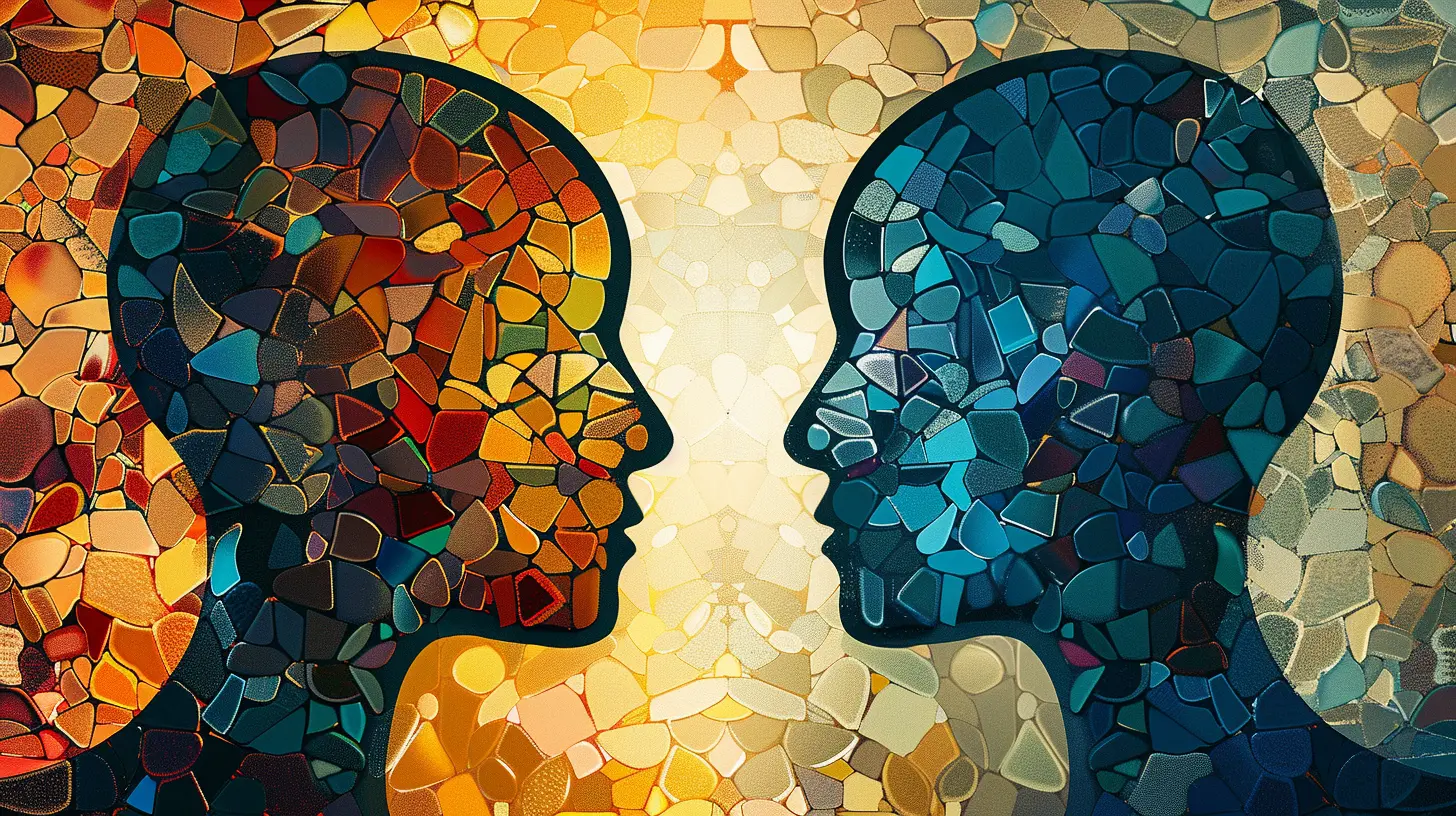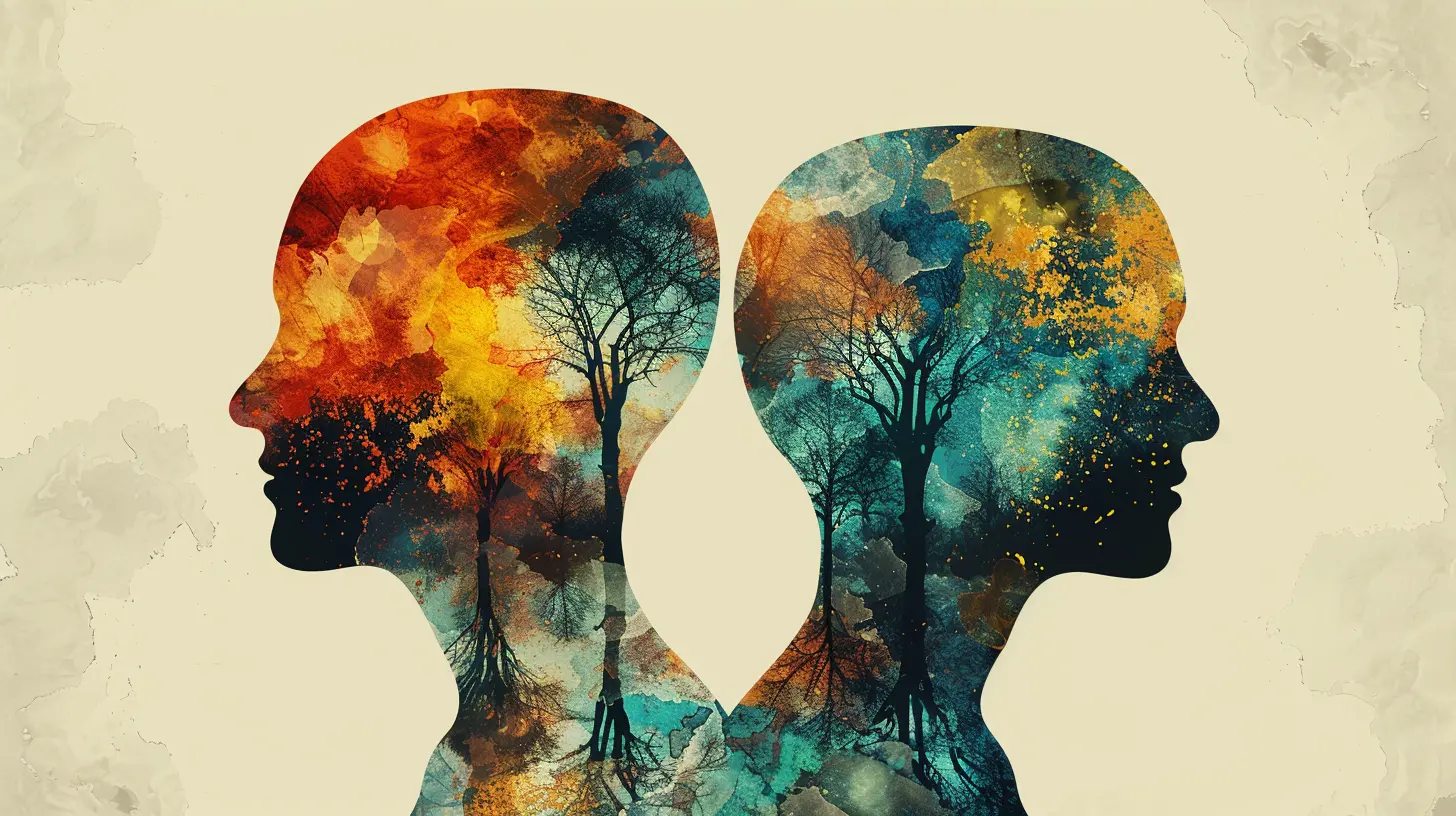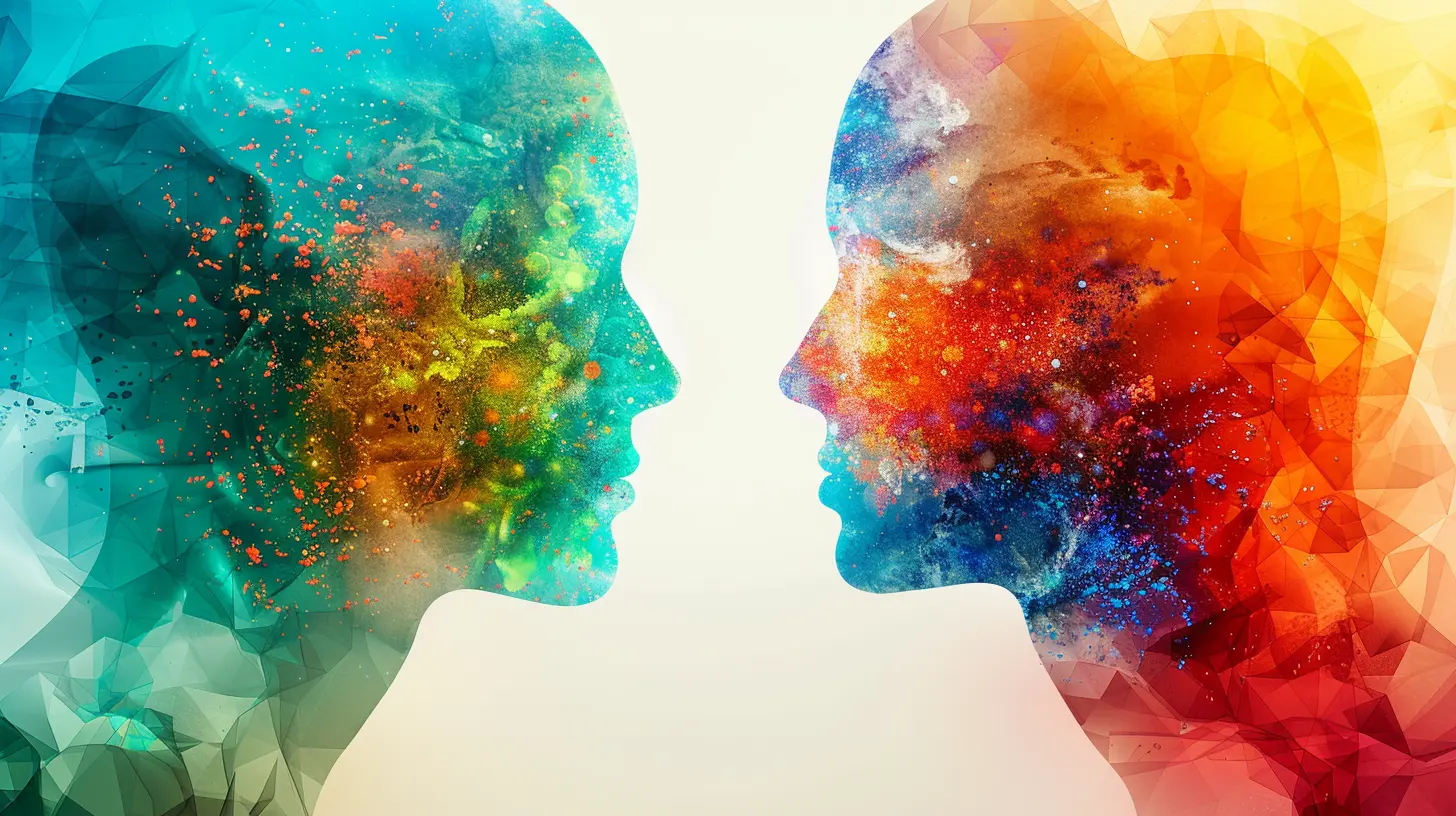How Empathy Shapes Human Behavior and Relationships
6 June 2025
Empathy is like a secret superpower that influences how we connect with others. It’s that deep emotional bridge that allows us to step into someone else's shoes, feel their joy, and understand their struggles. Have you ever noticed how a simple act of kindness can change someone's entire day? That’s empathy in action!
But what exactly is empathy, and how does it shape our behavior and relationships? Let’s dive deeper and uncover how this essential human trait impacts our daily interactions. 
Understanding Empathy
Before we explore its effects, let's get clear on what empathy actually is.What is Empathy?
Empathy is the ability to recognize, understand, and share the feelings of another person. It’s different from sympathy, which is simply feeling sorry for someone. Instead of just observing emotions from a distance, empathy allows us to experience them as if they were our own.There are three main types of empathy:
1. Cognitive Empathy: Understanding someone else's perspective without necessarily feeling their emotions. Think of it as the logical side of empathy—helpful in decision-making and communication.
2. Emotional Empathy: Feeling what the other person feels, almost as if their emotions are contagious. Ever teared up while watching a sad movie? That’s emotional empathy in action.
3. Compassionate Empathy: A blend of understanding and feeling emotions, but with the added urge to take action and help. This is the empathy that drives people to offer support when someone is in distress. 
How Empathy Shapes Human Behavior
Empathy isn’t just a nice quality to have—it fundamentally influences how we behave in social settings. Here’s how:1. Encourages Kindness and Altruism
When you genuinely feel someone else’s pain or joy, you’re more likely to act in ways that help or uplift them. Ever held the door open for someone struggling to carry groceries or comforted a friend going through a tough time? That urge to assist comes from empathy.Studies show that people with higher levels of empathy are more likely to engage in altruistic behavior—acts of kindness without expecting anything in return. It’s like an invisible glue that holds societies together, making the world a more compassionate place.
2. Improves Communication and Understanding
Think about a time when you had a misunderstanding with someone. Chances are, a lack of empathy played a role in the conflict. Effective communication isn’t just about words—it’s about understanding where the other person is coming from.When we practice empathy, we become better listeners. Instead of just waiting for our turn to speak, we genuinely try to understand the emotions behind the words. This leads to deeper, more meaningful conversations.
3. Reduces Aggression and Conflict
Empathy acts as a natural conflict resolver. When we take the time to understand someone else’s emotions, we're less likely to react with anger or frustration. Imagine driving in traffic—if someone cuts in front of you, your first instinct might be rage. But what if you considered that they might be rushing to a hospital emergency or dealing with personal stress? Empathy helps shift our perspective, reducing hostility and increasing patience.4. Strengthens Leadership Skills
Great leaders aren’t just commanding—they’re understanding. Whether in the workplace or in personal life, leaders who practice empathy create stronger, more cohesive teams. Employees feel valued when their concerns are acknowledged, leading to increased morale and productivity.In fact, research suggests that empathetic leadership leads to higher job satisfaction and lower employee turnover. A leader who listens and truly cares about their team fosters a healthy and motivating work environment. 
The Role of Empathy in Relationships
Empathy is the foundation of strong relationships, whether they’re romantic, familial, or friendships. It helps build trust, connection, and emotional intimacy.1. Creates Emotionally Deeper Connections
Imagine sharing your biggest fear or deepest joy with someone, only to have them respond with indifference. Not very comforting, right? When someone truly listens and understands your emotions, it creates a sense of security and belonging. Empathy fuels emotional bonds, allowing relationships to flourish.2. Enhances Conflict Resolution in Relationships
Disagreements are a natural part of any relationship, but how we handle them makes all the difference. Couples and friends who practice empathy navigate conflicts more smoothly. Instead of attacking each other, they try to see things from the other’s perspective, leading to resolutions that benefit both parties.3. Encourages Compassionate Parenting
Empathy is a game-changer in parenting. Children learn emotional intelligence by observing their parents. When parents respond to their child’s emotions with understanding rather than frustration, they teach them how to navigate their own feelings in a healthy way.Picture a toddler throwing a tantrum. Instead of simply scolding them, an empathetic parent might acknowledge their frustration (“I see you're upset because you wanted more playtime. It’s hard to stop when you're having fun.”). This approach validates the child's emotions and helps them feel understood, ultimately leading to better emotional regulation as they grow up. 
Can Empathy Be Learned or Strengthened?
Absolutely! While some people may naturally be more empathetic, it’s a skill that can be developed with practice. Here are some ways to boost your empathy:1. Practice Active Listening
Instead of just hearing someone’s words, focus on their emotions. Pay attention to their tone, expressions, and body language. Nod, ask clarifying questions, and show that you genuinely care.2. Step Into Others’ Shoes
When encountering different perspectives, instead of dismissing them, try to see things from the other person’s point of view. Ask yourself, “How would I feel if I were in their situation?”3. Read Fiction and Watch Thought-Provoking Movies
Believe it or not, stories help develop empathy. They allow us to experience different emotions and perspectives, expanding our ability to relate to others.4. Engage in Acts of Kindness
Small gestures like complimenting a stranger, lending a helping hand, or checking in on a friend can enhance your empathetic instincts. The more kindness you show, the more attuned you become to others' emotions.5. Reflect on Your Own Emotions
Understanding yourself is key to understanding others. Take time to process your own feelings, and you’ll find it easier to recognize them in others.When Empathy Becomes Overwhelming
While empathy is a remarkable trait, too much of it can sometimes lead to emotional exhaustion—also known as "compassion fatigue." If you constantly absorb others’ emotions without setting boundaries, it can take a toll on your mental well-being.To maintain a healthy balance:
- Set emotional boundaries—help others, but don’t carry their burdens as your own.
- Practice self-care—engage in activities that recharge your emotional energy.
- Learn to say no when you need to prioritize your own well-being.
Final Thoughts
Empathy isn’t just a feel-good emotion—it’s the foundation of strong relationships, effective communication, and a more compassionate world. It shapes the way we behave, interact, and build connections with those around us.So next time you see someone struggling, pause for a moment. Listen, understand, and offer kindness. Because sometimes, the simple act of truly seeing another person can make all the difference.
all images in this post were generated using AI tools
Category:
Psychological ResearchAuthor:

Alexandra Butler
Discussion
rate this article
2 comments
Melina McTier
Thank you for exploring the profound impact of empathy on our connections. Understanding its role can truly transform our relationships and enhance our shared humanity.
June 13, 2025 at 3:46 AM

Alexandra Butler
Thank you for your thoughtful comment! I’m glad you found the exploration of empathy’s impact valuable. it truly is essential for deepening our connections and fostering understanding.
Lola Turner
Empathy is like the glue that holds our quirky human hearts together! It helps us understand each other better, share a laugh, or offer a shoulder to cry on. Let’s celebrate this magical connection that turns our everyday interactions into a warm, fuzzy adventure! 🌟💖
June 7, 2025 at 3:44 PM

Alexandra Butler
Absolutely! Empathy truly enriches our connections, transforming ordinary moments into meaningful experiences. Let's cherish and nurture this invaluable trait! 💖


